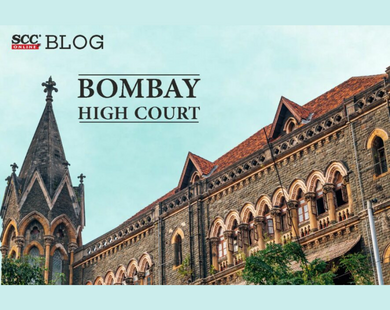Bombay High Court: In a civil writ petition seeking permission for medical termination of pregnancy of around 32 weeks, the division bench of G.S. Patel and S.G. Dige, JJ. permitted the same, against the Medical Board's report as the foetus suffers from multiple anomalies which could be mild to severe, often lifelong and life-threatening and may cause death before the age of 10.
The petition specifically revolves around the timelines under Section 3 of Medical Termination of Pregnancy Act, 1971 regarding pregnancy of an adult married woman. The petitioner, coming from a humble background with severe financial constraints, seeks Court's permission for medical termination of pregnancy due to inability to afford additional care and expenses of an infant born with such conditions.
As regards the petitioner's medical history, tests were normal for sonography and a foetal anomaly scan at 14 weeks. A few months later, follow-up scans revealed that the foetus suffering from multiple anomalies including ‘microcephaly' and ‘lissencephaly'. A Medical Board constituted as per Medical Termination of Pregnancy Act, 1971 (‘MTP Act') denied termination of pregnancy due to advanced gestation period. The report reads as “Deformity being correctable free of cost at government and major Municipal Corporation hospitals, and considering the advanced gestational age, the Medical Termination of pregnancy is not recommended.”
The Court did not find the Medical Board's recommendations appealing. The Medical Board has totally overlooked the fact that there is no prospect at all for a baby being born in a normal condition, or having a normal, healthy and balanced life.
The Court referred to information available on the websites of Centers for Disease Control or Prevention (‘CDC') and National Institute of Neurological Disorders and Stroke (‘NINDS') to get into the depths of foetus' condition in the instant case. According to the information available, microcephaly is a birth defect which may result in smaller and under-developed size of the baby's head. The condition may lead to seizures, developmental delays, speech and other forms of lasting disabilities, which may be life-threatening as well. Lissencephaly is also a rare condition with severe symptoms which may result in death even before the age of 10.
Considering the petitioner's social and economic condition, serious foetal anomalies and abnormalities and the possibility of birth of the baby, the Court relied on Supreme Court's elucidation of Constitutional values, animating proper interpretation of the MTP Act in X v. Health & Family Welfare Department, 2022 SCC OnLine SC 1321.
Regarding petitioner's petition seeking termination of pregnancy, the Court said that “the petitioner takes an informed decision, it is not an easy one. But that decision is hers, and hers alone to make, once the conditions in the statute are met. The right to choose lies with the petitioner and not the Medical Board. It is also not the right of the Court to abrogate the petitioner's rights once they are found to fall within the contemplation of the law.”
Thus, the Court allowed medical termination of the petitioner. For detailed orders on termination of pregnancy, the Court clarified that “to protect the petitioner's privacy, we are making a separate operative order. The operative order is not to be uploaded.”
For like matters, the bench opined that the Courts must also consider the profound questions of identity, agency, self-determination and right to make an informed choice while dealing with the facts of the case as they stand.
[ABC v. State of Maharashtra, 2023 SCC OnLine Bom 175, decided on 20-01-2023]
Advocates who appeared in this case :
For Petitioner: Advocate Aditi Saxena and Advocate Rachita Padwal.
For Respondents: Advocate V.M. Mali







